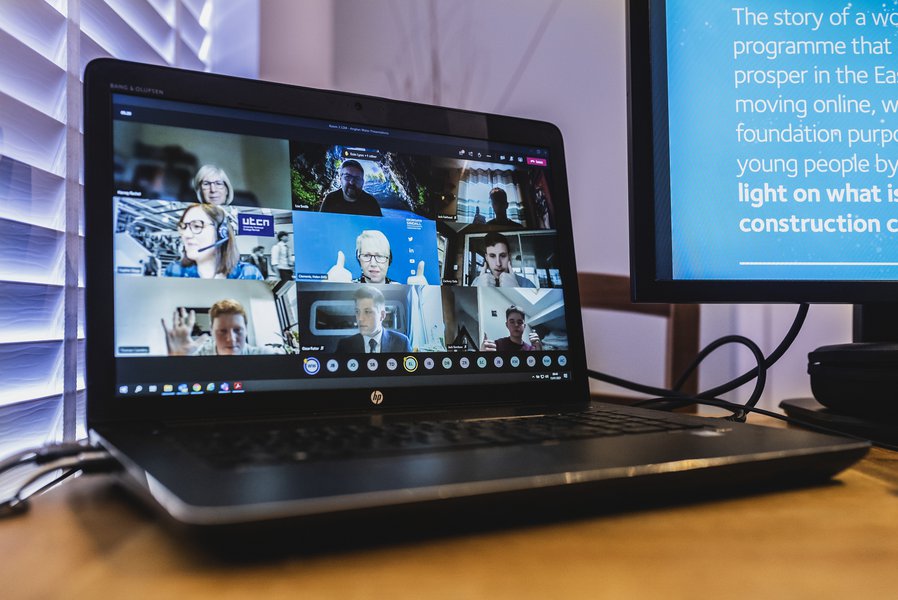Over the last three years, Social Value Manager in our Eastern region, Helen Clements, has made it her mission to develop our educational engagement programmes to address not only the skills shortage in construction, but the diversity and inclusion challenges the industry continues to face when it comes to work experience.
Changing the current programme
A starting point for Helen was understanding what the current demographic of our placement students in the East looked like. Just like many others in the industry, we weren’t attracting enough diverse candidates, and given that this is one of the biggest areas of disparity in construction, part of Helen’s initial strategy was creating the educational outreach programme. This programme has now sculpted the way she negotiates and interacts with local authorities, local employment partnerships, and careers advisory units, and ensures we are offering opportunities to a breadth of students across the East of England.
Not only was it important to consider who we had undertaking these placements but what our work experience would actually involve as this would prove critical in inspiring the next generation of talent to work with us. The programme has evolved from a typical ‘shadowing’ structure and is now based upon a design challenge where they work together with other local students and take on the roles of an integrated project team and, through engagement with experts in our business and partner consultants, use the week to learn about career pathways, sustainable design, engineering, construction methods and much more.
The new week-long programme helps showcase the diversity of roles and career options available, so that when they leave, it neatly points them towards the next steps for apprenticeship, trainee and graduate employment schemes.
The introduction of Virtual Work Experience (VWEx) and digital learning
In 2020, the COVID19 pandemic hit and forced a huge number of employers to curtail their educational engagement programmes and lockdown restrictions meant that our new and improved work experience programme was unable to take place. But, determined to ensure students still gained a taste of industry, Helen rapidly launched a brand-new digital work experience programme we now call VWEx.
Thanks to the likes of platforms such as Microsoft Teams and Google Classroom, the entire weeks curriculum was pivoted digitally, containing everything they would have done usually, but in a virtual environment. By moving the programme online, not only were students able to gain the same valuable experience as they would do in person but the capabilities of going virtual meant Helen was able to gather a larger cohort of pupils from across the country, expanding out of the Eastern region offering experience to an array of students, all with different educational experiences.
The very first cohort to undergo this digital programme saw 30 students from different schools come together in mixed teams to work with people they’d never met before. Helen found that the students were more engaged by working with students from other schools. Their different experiences and opinions led each team to work more coherently and find solutions to their design challenge more efficiently.
As well as this and thanks to the many functions that Google Classrooms offer, students had also developed more confidence than she would usually see. They seemed more willing to contribute to discussions via the interactive ‘chat’ bar where they might not have done if they had to speak in person.
This didn’t just benefit the students but going digital meant that a variety of volunteers across each region could get involved with delivering the programme alongside Helen and other regional social value managers. Students were able to learn from and work with people in our business who they may have not ordinarily cross paths with if they did their programme on site.
However, this post is not to undermine the valuable learning students would get from working on the job but instead highlights how the digital world can allow us to be more accepting of those who may not have the accessibility, commitment, or confidence to come and work with us for a week. Part of Helen’s strategy is now focusing on how we become completely inclusive of the students that take part in our work experience. After her observations through VWEx, it’s important to recognise that some may not be able to travel to our offices/sites or generally find it daunting to interact in an adult workspace with our colleagues face-to-face, and prefer to learn and engage from the comfort of their own home. Our challenge is now working towards being accepting of that and adapting where possible, but willingly.

Moving forward
By moving work experience online, we have already done great things to offer the next generation opportunities to learn about the industry and Helen is already negotiating with our clients on how we can use this digital programme for underrepresented groups such as working mums. However, with fewer job opportunities available in the aftermath of lockdown and an extremely rife and competitive market, promoting social mobility and fair access must remain our top priority. If we are to be truly inclusive, we must avoid the one-size-fits-all approach to learning and continue to invest in our range of educational programmes, as the business will only reap the benefits of sourcing the next generation of diverse talent who can take our business forward.


